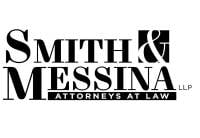Bankruptcy is a complex and nuanced area of the law. If you decide that filing for Chapter 13 bankruptcy is your best option, there will be many terms and concepts which will be unfamiliar to you. One of those concepts is the adequate protection payment, which the law requires in some circumstances.
What is an adequate protection payment?
Bankruptcy law seeks to balance the interests of both debtors and creditors. Adequate protection payments are one means by which it does so. An adequate protection payment is made directly to a creditor before a Chapter 13 plan has been approved, which accounts for the depreciation of collateral during that time.
A typical example might involve a car and a car loan, in cases where the creditor has secured the loan with the car as collateral. The problem for the creditor is that, once Chapter 13 has been filed and the automatic stay takes effect, the debtor stops making payments, but the collateral (the car) continues to depreciate in value. This has the potential to hurt the creditor.
How do the payments work?
When a debtor files for Chapter 13 bankruptcy and submits their repayment plan, it may take many months before the plan is approved. This is the period when the car’s value is depreciating. As part of their plan, the debtor will be making payments to the bankruptcy trustee, according to their plan. Let’s say that includes $500 per month to cover the car.
If the law requires an adequate protection payment to protect the creditor, the debtor may instead pay $400 to the trustee and $100 to the creditor. The $100 is the adequate protection payment and will continue until the debtor’s plan is approved.
When you have questions about bankruptcy issues such as adequate protection payments, speak to a professional who is experienced in bankruptcy law. They can answer your questions and help determine what will, and will not, be applicable in your bankruptcy.

